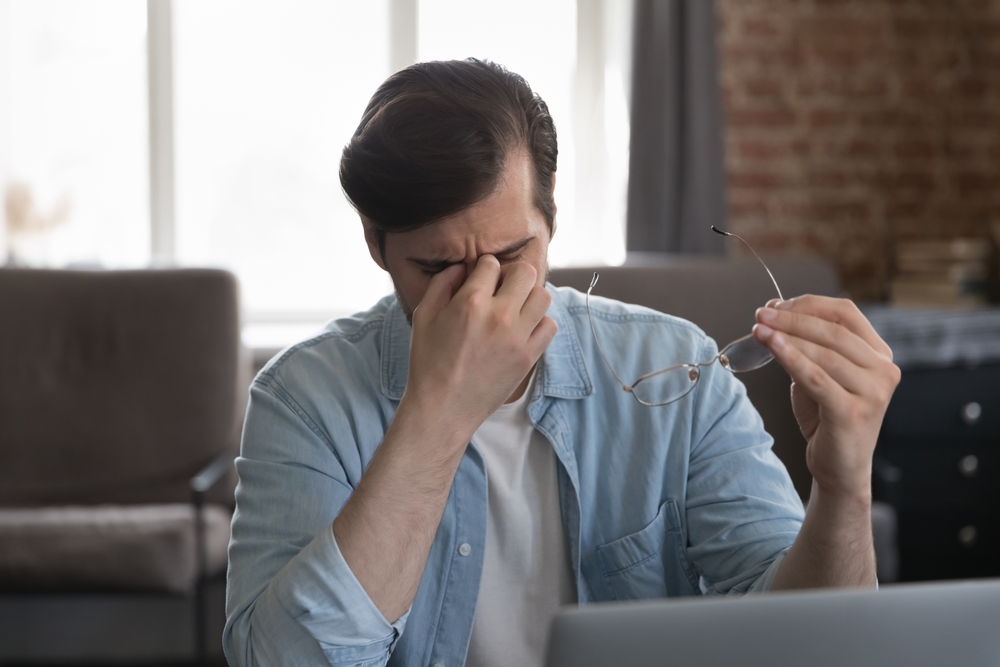
Dry eye can cause persistent discomfort, blurred vision, and make daily activities challenging. At Chelsea Vision Associates, we provide advanced treatment options to help patients find lasting relief. Understanding what causes dry eye is the first step toward effective management and prevention.
What Is Dry Eye?
Dry eye occurs when your eyes don’t produce enough tears or when the quality of your tears is inadequate to keep the eye’s surface lubricated. This can result in symptoms like burning, stinging, grittiness, sensitivity to light, blurred vision, and even excessive tearing as your eyes try to compensate for dryness.
Common Causes of Dry Eye
Dry eye is rarely due to a single factor. Multiple causes can contribute to the condition, including:
• Aging: Tear production naturally decreases with age, making older adults more susceptible.
• Meibomian Gland Dysfunction (MGD): When the oil-producing glands along the eyelid margin become blocked or inflamed, it leads to quicker evaporation of tears.
• Blepharitis: Chronic inflammation of the eyelids can disrupt tear production and quality.
• Eye Surgery: Procedures like LASIK or cataract surgery can temporarily or permanently affect tear production.
• Contact Lens Use: Extended or improper contact lens wear can exacerbate dryness.
• Allergies: Allergic reactions can trigger inflammation and reduce tear quality.
• Medications: Certain antihistamines, antidepressants, blood pressure medications, and others can reduce tear production.
• Medical Conditions: Diseases like diabetes, thyroid disorders, rheumatoid arthritis, and Sjögren’s syndrome are frequently associated with dry eye.
How To Help Prevent Dry Eye
While some causes of dry eye can’t be avoided, there are steps you can take to lower your risk and manage symptoms:
• Practice Good Eyelid Hygiene: Regularly clean your eyelids to remove debris and bacteria that can cause inflammation.
• Limit Screen Time: Take frequent breaks from digital devices to encourage natural blinking.
• Use a Humidifier: Increasing moisture in the air can help reduce evaporation of tears.
• Protect Your Eyes: Wear sunglasses outdoors to shield your eyes from wind and UV rays.
• Choose Contacts Wisely: Consider daily disposable lenses and always follow your eye doctor’s recommendations.
• Stay Hydrated & Eat Well: A diet rich in omega-3 fatty acids may support tear production.
Identifying the Root Cause
Effective treatment for dry eye begins with an accurate diagnosis. At Chelsea Vision Associates & Dry Eye Treatment Center, Dr. Gross performs a comprehensive evaluation to determine the underlying cause of your symptoms. This process involves taking a detailed patient history, evaluating the quantity and quality of your tear film, assessing the meibomian glands for any blockages or dysfunction, and examining the eyelids for signs of inflammation or blepharitis. By pinpointing the exact cause of your dry eye, we can recommend the most effective and targeted treatment plan to address your unique needs.
Treatment Options for Dry Eye for Long-Term Relief
Treatment is most successful when it addresses the specific cause(s) of your dry eye. Options include:
• Eyelid Hygiene: Regular cleansing to treat blepharitis or MGD.
• Artificial Tears: Lubricating eye drops to supplement natural tears.
• Prescription Eye Drops: Medications that reduce inflammation or stimulate tear production.
• Nutritional Supplements: Omega-3 fatty acids and other supplements may help improve tear quality.
• Punctal Plugs: Tiny devices placed in the tear ducts to reduce tear drainage and keep eyes moist.
• Intense Pulsed Light (IPL) Therapy: Advanced treatment for MGD and inflammation-related dry eye.
Dr. Gross will create a personalized treatment plan based on your needs and the root cause of your symptoms.
Ready to Find Relief from Dry Eye?
Dry eye is a multifactorial condition, but with expert diagnosis and targeted care, it can be managed effectively. If you’re struggling with dry, irritated eyes, early intervention is key to long-term relief and maintaining healthy vision.
If you’re experiencing dry eye symptoms, schedule a consultation with Chelsea Vision Associates and discover a customized solution for your comfort and eye health. Visit our office in New York, NY, or call (212) 243-5898 to book an appointment today.






